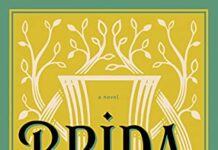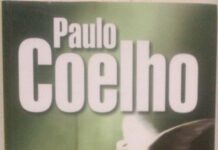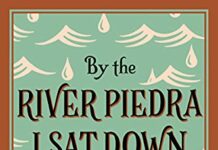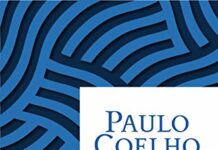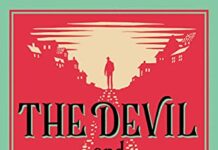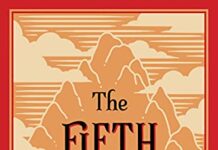
Ebook Info
- Published: 2013
- Number of pages: 210 pages
- Format: Epub
- File Size: 2.26 MB
- Authors: Paulo Coelho
Description
There is nothing wrong with anxiety.
Although we cannot control God’s time, it is part of the human condition to want to receive the thing we are waiting for as quickly as possible.
Or to drive away whatever is causing our fear. . . .
Anxiety was born in the very same moment as mankind. And since we will never be able to master it, we will have to learn to live with it—just as we have learned to live with storms.
July 14, 1099. Jerusalem awaits the invasion of the crusaders who have surrounded the city’s gates. There, inside the ancient city’s walls, men and women of every age and every faith have gathered to hear the wise words of a mysterious man known only as the Copt. He has summoned the townspeople to address their fears with truth:
“Tomorrow, harmony will become discord. Joy will be replaced by grief. Peace will give way to war. . . . None of us can know what tomorrow will hold, because each day has its good and its bad moments. So, when you ask your questions, forget about the troops outside and the fear inside. Our task is not to leave a record of what happened on this date for those who will inherit the Earth; history will take care of that. Therefore, we will speak about our daily lives, about the difficulties we have had to face.”
The people begin with questions about defeat, struggle, and the nature of their enemies; they contemplate the will to change and the virtues of loyalty and solitude; and they ultimately turn to questions of beauty, love, wisdom, sex, elegance, and what the future holds. “What is success?” poses the Copt. “It is being able to go to bed each night with your soul at peace.”
* * *
Now, these many centuries later, the wise man’s answers are a record of the human values that have endured throughout time. And, in Paulo Coelho’s hands, The Manuscript Found in Accra reveals that who we are, what we fear, and what we hope for the future come from the knowledge and belief that can be found within us, and not from the adversity that surrounds us.
User’s Reviews
From Booklist Coelho’s quietly beautiful book is difficult to categorize. Unlike many of his novels, it is not an allegory, nor does it revolve around a mystical or physical pilgrimage. Instead, it consists of a series of queries posed by a population under siege and the powerfully simple, yet evocative, answers provided by an essentially unidentified wise man. As Jerusalem is surrounded by belligerent Crusaders in AD 1099, its diverse citizens—Jews, Muslims, and Christians, who have lived together in peace for centuries—gather in the square to seek the counsel of the Greek, known familiarly as the Copt. The Copt advises them to speak of their daily lives and search their hearts, minds, and souls for questions pertaining to universal truths. As the Copt thoughtfully answers questions posed about a variety of everyday subjects, including solitude, love, utility, luck, miracles, beauty, sex, anxiety, grace, and elegance, he bequeaths to his audience an “invisible sword” with which to fight intolerance and ignorance. HIGH-DEMAND BACKSTORY: The sublime Coelho continues to break stylistic boundaries with this series of spiritual musings grounded more in history and morality than in his trademark brand of mysticism. –Margaret Flanagan –This text refers to an alternate kindle_edition edition. Excerpt. © Reprinted by permission. All rights reserved. Excerpted from the Hardcover editionAlas, that is not true. I am only twenty-one, my parents gave me love and an education, and I married a woman I love and who loves me in return. However, tomorrow, life will undertake to separate us, and we must each set off in search of our own path, our own destiny or our own way of facing death.As far as our family is concerned, today is the fourteenth of July, 1099. For the family of Yakob, the childhood friend with whom I used to play in this city of Jerusalem, it is the year 4859—he always takes great pride in telling me that Judaism is a far older religion than mine. For the worthy Ibn al-Athir, who spent his life trying to record a history that is now coming to a conclusion, the year 492 is about to end. We do not agree about dates or about the best way to worship God, but in every other respect we live together in peace.A week ago, our commanders held a meeting. The French soldiers are infinitely superior and far better equipped than ours. We were given a choice: to abandon the city or fight to the death, because we will certainly be defeated. Most of us decided to stay.The Muslims are, at this moment, gathered at the Al-Aqsa mosque, while the Jews choose to assemble their soldiers in Mihrab Dawud, and the Christians, who live in various different quarters, are charged with defending the southern part of the city.Outside, we can already see the siege towers built from the enemy’s dismantled ships. Judging from the enemy’s movements, we assume that they will attack tomorrow morning, spilling our blood in the name of the Pope, the “liberation” of the city, and the “divine will.”This evening, in the same square where, a millennium ago, the Roman governor Pontius Pilate handed Jesus over to the mob to be crucified, a group of men and women of all ages went to see the Greek, whom we all know as the Copt.The Copt is a strange man. As an adolescent, he decided to leave his native city of Athens to go in search of money and adventure. He ended up knocking on the doors of our city, close to starvation. When he was well received, he gradually abandoned the idea of continuing his journey and resolved to stay.He managed to find work in a shoemaker’s shop, and—just like Ibn al-Athir—he started recording every- thing he saw and heard for posterity. He did not seek to join any particular religion, and no one tried to persuade him otherwise. As far as he is concerned, we are not in the years 1099 or 4859, much less at the end of 492. The Copt believes only in the present moment and what he calls Moira—the unknown god, the Divine Energy, responsible for a single law, which, if ever broken, will bring about the end of the world.Alongside the Copt were the patriarchs of the three religions that had settled in Jerusalem. No government official was present during this conversation; they were too preoccupied with making the final preparations for a resistance that we believe will prove utterly pointless.“Many centuries ago, a man was judged and condemned in this square,” the Greek said. “On the road to the right, while he was walking toward his death, he passed a group of women. When he saw them weeping, he said: ‘Weep not for me, weep for Jerusalem.’ He prophesied what is happening now. ‘From tomorrow, harmony will become discord. Joy will be replaced by grief. Peace will give way to a war that will last into an unimaginably distant future.’ ”No one said anything, because none of us knew exactly why we were there. Would we have to listen to yet another sermon about these invaders calling themselves “crusaders”?For a moment, the Copt appeared to savor the general confusion. And then, after a long silence, he explained:“They can destroy the city, but they cannot destroy everything the city has taught us, which is why it is vital that this knowledge does not suffer the same fate as our walls, houses, and streets. But what is knowledge?”When no one replied, he went on:“It isn’t the absolute truth about life and death, but the thing that helps us to live and confront the challenges of day-to-day life. It isn’t what we learn from books, which serves only to fuel futile arguments about what happened or will happen; it is the knowledge that lives in the hearts of men and women of good will.”The Copt said:“I am a learned man, and yet, despite having spent all these years restoring antiquities, classifying objects, recording dates, and discussing politics, I still don’t know quite what to say to you. But I will ask the Divine Energy to purify my heart. You will ask me questions, and I will answer them. That is what the teachers of Ancient Greece did; their disciples would ask them questions about problems they had not yet considered, and the teachers would answer them.”“And what shall we do with your answers?” someone asked.“Some will write down what I say. Others will remember my words. The important thing is that tonight you will set off for the four corners of the world, telling others what you have heard. That way, the soul of Jerusalem will be preserved. And one day, we will be able to rebuild Jerusalem, not just as a city, but as a center of knowledge and a place where peace will once again reign.”“We all know what awaits us tomorrow,” said another man. “Wouldn’t it be better to discuss how to negotiate for peace or prepare ourselves for battle?”The Copt looked at the other religious men beside him and then immediately turned back to the crowd.“None of us can know what tomorrow will hold, because each day has its good and its bad moments. So, when you ask your questions, forget about the troops outside and the fear inside. Our task is not to leave a record of what happened on this date for those who will inherit the Earth; history will take care of that. Therefore, we will speak about our daily lives, about the difficulties we have had to face. That is all the future will be interested in, because I do not believe very much will change in the next thousand years.” –This text refers to an alternate kindle_edition edition. Review ‘One of the few to deserve the term “publishing phenomenon”’ Independent on Sunday ‘His books have had a life-enhancing impact on millions of people.’ The Times ‘His writing is like a path of energy that inadvertently leads readers to themselves, toward their mysterious and faraway souls.’ Le Figaro ‘Coelho’s writing is beautifully poetic but his message is what counts… he gives me hope and puts a smile on my face.’ Daily Express ‘An exceptional writer.’ USA Today ‘I love The Alchemist.’ Oprah Winfrey ‘The Alchemist is a beautiful book about magic, dreams and the treasures we seek elsewhere and then find on our doorstep.’ Madonna ‘One of my favourite books is The Alchemist by Paulo Coelho…I feel very strongly that we are who we choose to be.’ Will Smith ‘I always recommend The Alchemist’ Russell Crowe ‘The Alchemist is a story about the endless search of finding out who you truly are. On the road for most of our lives, sometimes it’s difficult to find something to grasp on to, to define who you are and where you belong—and reading The Alchemist truly made me appreciate my family and band and those close to and around me. It brought some stability into our wild ride of a life.’ Joe Jonas –This text refers to an out of print or unavailable edition of this title.
Reviews from Amazon users, collected at the time the book is getting published on UniedVRG. It can be related to shiping or paper quality instead of the book content:
⭐ I had this book on my Kindle for a while. I think I started reading it a few years ago, read a page or two, and then I got bored and put it down. It’s not a novel, and if you are expecting a novel, you will be disappointed.When I started reading it again a couple of weeks ago, I had recently finished reading Kahlil Gibran’s The Prophet, and this time Manuscript Found in Accra made much more sense. I’ve read several books by Paolo Coelho, some of them I love, some of them I don’t like at all, and I do think fame goes to some people’s heads and ruins their perspective. But I believe this book does not come from Paolo Coelho’s ego, but from insights inspired by meditations and from a connection to the Universe.I read it at a time when I was going through a hard time at work, and the book put my problems in perspective. In my opinion, this is Paolo Coelho’s best book.
⭐ MANUSCRIPT FOUND IN ACCRABY PAULO COELHOFirst Vintage International Edition, December 2013I was introduced to the book “ALCHEMIST” by Paulo Coelho by a good friend of mine and I got hooked to the author and his books. I have become a great admirer of him and got hold of all his books to read and digest. Last month, I got his latest three books from Amazon, namely: “Manuscript Found in Accra”, The ALEPH, and Adultery. I just finished reading “Manuscript Found in Accra”Paulo Coelho, Nobel Laureate of Literature, lives in Rio de Janeiro, Brazil. His books have been translated into 74 languages and sold in 170 countries: more than 140 million copies sold. There is nothing more one can say of him with such a track record.He led a chequered life, was on drugs and lived like a “hippie. He did all sorts of things: had a hand in journalism, song writing and acting before settling down to a career of serious writing.He is what I would call a “spiritual philosopher” or a motivational guru” with a positive attitude to life. Philosophy and spirituality merge and the end result his work is one of beauty with an underlying message to boost morale and achievement. His works often encourages “chasing one’s dream” never to waiver but to prod on until one attains his dream.The fable of the “Manuscript found in Accra” is set in Jerusalem sometime in July 1099. The Crusaders are at the gates of Jerusalem and the city is expected to fall soon. The community made up of Christians, Jews and Moslems who have lived peacefully now face the destruction of their social fabric.In the midst of a forlorn backdrop of uncertainty and gloom, the people gather to listen to the wisdom of a Greek Copt who appears from nowhere to answer questions the people have on a variety of subjects. The questions reflect both a sense of anxiety and foreboding, like those on defeat, solitude, fear and anxiety to an elated spirit of hope and cheer like those on beauty, love, sex, elegance and luck. The Copt’s answers on various topics are couched in poetic prose and delivered in such manner that they become inspirational and life-changing: some examples of which are as follows:On Solitude: “In solitude, they will learn that saying no does not always show a lack of generosity, and saying yes is not always a virtue.”On Change: “We are afraid to change because we think that, after so much effort and sacrifice, we know our present world.”On Beauty: “Instead of accepting ourselves as we are, we try to imitate what we see around us. We deny our own beauty because others can’t or won’t recognize it.”On Sex: “If two bodies merely join together, that is not sex, it is merely pleasure. Sex goes far beyond pleasure.”On Fate: “There is no point in saying: ‘Fate was unfair to me.’ While others are following their dreams, here I am just doing my job and earning my living.”On Anxiety: “Therefore, although anxiety is part of life, never let it control you. If it comes too close, say ‘I’m not worried about tomorrow, because God is there already, waiting for me.”On Loyalty: “Loyalty is a pearl among grains of sand, and only those who really understand its meaning can see it.”Enemy: “The enemy is not the person standing before you, sword in hand. It is the person standing next to you with a dagger concealed behind his back.”Death: “The truly wise do not grieve over the living or the dead. Therefore, accept the battle that awaits you tomorrow because we are made of Eternal Spirit, which often places us in such situations that we need to confront.”The book is made up entirely of quotable quotes and they also reflect the author’s exposure to the teachings of many religions. For example, the one on death above reminds one of the dialogues between Krishna and Arjun at the battle field of Kurukshetra in the Bhagavad Gita.“Manuscript Found in Accra” is a book that encourages and earnestly exhorts to positive action at a time of grief or disappointment. It is worth a read.
⭐ Like The Prophet, Thus Spoke Zarasustra, and other books based more on ideas than on story, this book is bound to be a classic read for years by people in search of a deeper understanding and purpose in life and meaning. I was very impressed with this book and enjoyed it a lot. Paulo Coehlo has been one of my favorite authors for awhile, but, some of his books are hit and miss. This book is a hit right out of the park. You will not finish this book looking at the world the same way when you started it. My favorite line is, “Live Every Day like It’s Your First.”I have often rejected the school of thought to live each day like it’s your last. I knew too many drug addicts, too many alcoholics, who did exactly that. Live Every Day Like It’s Your First says to me that you should look at every day with the glory and beauty and amazement that exist out in the world. Imagine waking up to the person that you love and looking at them like you did the very first time you realized you were in love with this person. Imagine it’s the first time your eyes locked. Imagine it’s the first time after your first kiss. If you looked at that person like that every day, how much better a relationship would you have.This book is amazing. It’s got a lot of great information and a lot of great thoughts. Take a moment and enjoy them.
⭐ This book is a philosophical fiction which doesn’t narrate a particular story. It’s more like a collection of fables and readers can learn something valuable from each chapter.The author talks about many complexities and emotions of human existence like defeat, solitude, identity, the meaning of beauty, love and fate, relationships, courage, family, work, miracles, loyalty, enemies and ultimately hope.
⭐ No matter where I am in life, this book speaks to me. It has lit a light for my feet along difficult aspects of my journey. Reminded me of what I already know when Ive felt lost. And is insightfully accomplished in the spirit of acceptance and giving. The subjects addressed are all part of the human experience at some point in life. It offers correction without condemnation. Inspiration to those who inspire and already possess great wisdom. Anyone could be edified from reading it.The short chapters lend themselves to quick, thought provoking insights to absorb amidst a busy life. And in truth, it is often those most busy with responsibilities who possess the least free time for reflection…who need it the most.As for those wishing there was more here in the form of a story… I would posit this; Consider the author may have wrote it this way intentionally to place more emphasis on the message. Nothing wrong with a story…just not sure it was the main purpose of this work. In fact, knowing what a great storyteller he is, I consider the perceived ‘lack of story’ as intended to emphasize part of the message the author wished to convey. It depends on what one is looking for when reaching for a book. It works for me.Coelho translates hidden spiritual mysteries into plain writing. It’s his gift to the world. And I’m grateful for it.
⭐ Oh, my! Paulo Coelho does it again, and again, and again. Accra is an important read, full of poetic and poignant insights and profound simplicity. It is truly the sacred text as is described in the read itself. I feel as though I need to have it beside my Bible, my Quran, and my Buddhist scriptures, seriously. It is the kind of read where everything is ingested and you’re left without words to convey the message–suspended between being muted and overflowing with expression. It should come as no surprise that Accra is beautifully written; I do not believe Coelho knows any other way. I tore through the read while simultaneously wanting to slow and savor lest it ending, and it has. I am left holding my gratitude close to my heart, smiling.
⭐ Amazing book of vignettes and thought provoking ways of looking at various aspects of life, love, self and learning.Classic Paulo Coelho, and a great addition to anyone’s library of his works.It’s the kind of stuff that makes you want to take a day and just mull it over before continuing on to read the next nugget of wisdom, much like the Alchemist – but these are easier to grasp/find because they’re not necessarily woven into the story. Each piece of wisdom is an answer to a direct question. Nuanced and thoughtful, the type of book that invites multiple re-reads to refresh your perspective.
⭐ I am a long time fan of the writing of Paulo Coelho and have read most of his books. I looked very much forward to his latest book, Manuscript Found in Accra to be published in English. I can firmly say that the wait was worth it. This new book is yet another pearl of wisdom. Like in his other books, Paulo gets us to think about who we really are and what is of importance in life.This book takes a bit of a different form than most of his other books. It is set up as a discussion between a wise man and the inhabitants of the city of Jerusalem in the year 1099. As the city is under siege the Coptic, an old wise man, gets the citizens to capture and transfer the wisdom and knowledge of the city before it gets destroyed by the crusaders. In many ways the format is the same as in Khalil Gibran’s book The Prophet. For those that expected a novel with an underlying theme of teaching you something, like Paulo’s other books that may be a bit of disappointment, but the amount of teaching and wisdom that Paulo gets across using this format is much higher and I enjoyed it tremendously.So for those of you who are like me, that read to challenge my own thinking and way of life, then this book is a must read.
⭐ A masterpiece of spiritual truth and guidance that will provide comfort, open hearts and minds, and enlighten if allowed to.
⭐ In this book, Paulo Coelho provides the recipe for living your life with courage, presence, purpose, clarity and love. These lessons are taught through a fictional story, but carry the impact and wisdom of your fondest memory of a cherished conversation with a parent, grand parent or other wise elder that shared a lifetime of wisdom and sage advice with you out of nothing more than their purest and deepest love for you.As a parent of two teenage children, I recommend this book to parents as it will teach you lessons you will surely want to pass on to your children. I also recommend this book to those struggling to find peace and courage in their mind, heart and spirit as it will provide you with a refreshing breath of encouragement and remind you all of things that are good and right in the world.I give this book my highest recommendation, and I hope you enjoy it as much as I have.Rick PetryFounder of the Institute For Urgent Action[…]
Keywords
Free Download Manuscript Found in Accra in Epub format
Manuscript Found in Accra Epub Free Download
Download Manuscript Found in Accra 2013 Epub Free
Manuscript Found in Accra 2013 Epub Free Download
Download Manuscript Found in Accra Epub
Free Download Ebook Manuscript Found in Accra
